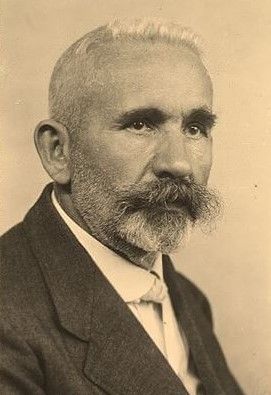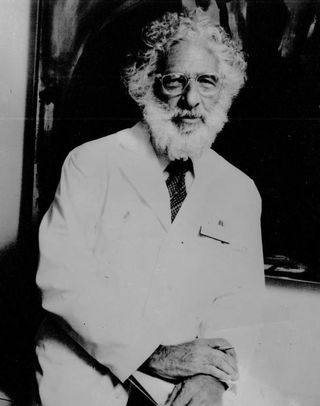Psychiatry
The Five Most Influential Psychiatric Thinkers of All Time
The iconic figures behind psychiatry's most consequential ideas.
Posted October 31, 2019 Reviewed by Lybi Ma
The rich and fascinating history of psychiatry is marked not only by dramatic shifts in theoretical conceptualization but also by the vast personalities who have contributed to the development of the field. In this sense, a thorough reading of psychiatric history requires not only an appreciation of theory but also of the distinctive figures behind the ideas that have come to shape our understanding of mental illness.
I recently posted on social media my (very unscientific) list of the five most influential psychiatric thinkers of the past 150 years. Here, I wish to expand on my list and offer some general comments on the contributions of each. Please note that this list ranks thinkers on the basis of their influence and does not necessarily imply agreement with their espoused ideas. In this regard, it is a list of influencers of general psychiatry, not of psychoanalysis, neuroscience, biological psychiatry, or any other subdiscipline.

1. Emil Kraepelin
No psychiatrist in the history of the discipline has had a greater influence on the actual practice of psychiatry (and the related fields) than Emil Kraepelin (1856-1926). Born in northern Germany, Kraepelin is widely regarded as the "father of scientific psychiatry," his work forming the basis of the modern psychiatric classification system.
A champion of what has come to be known as the "descriptive approach" to psychiatry, Kraepelin emphasized diagnosis on the basis of observable symptoms rather than purported underlying causes. His distinction between dementia praecox and manic-depressive psychosis came to be known as the "Kraepelinian dichotomy," and it remains enshrined in the DSM as the difference between schizophrenia and bipolar disorder. Indeed, he was the first to propose that these conditions represent two different disease states. Chiefly biological in his persuasion, his work continues to form the philosophical basis for the practice of modern, medical psychiatry.
2. Sigmund Freud
Freud's contributions to psychiatry abound, and a good argument could be made for him to be first on this list of influential thinkers. The "father of psychoanalysis," Freud (1856-1939) championed the idea that much of mental life exists at a level that is outside of our awareness, and that these unconscious forces yield great influence on human conduct. His ideas permeated American psychiatry throughout most of the 20th century, and it is Freud who is responsible for opening up psychiatry to outpatient practice. Prior to psychoanalysis, psychiatrists were "mad doctors" and "asylum keepers," separated from the rest of medicine—even in the physical sense.
The rise of psychoanalysis brought psychiatry out of the dark dungeons of the asylum and made it a lucrative, high-prestige discipline which, in the 1950s and 1960s, was attracting the best and brightest medical students. As Allen Frances, M.D., chairman of the DSM-IV Task Force puts it: Freud was overrated in his day but is vastly underrated today. Research continues to confirm many of Freud's basic observations about human nature, and psychoanalytic treatment retains a solid following and evidence base for multiple psychiatric disorders.
3. Eugen Bleuler
An early follower of Freud, the Swiss psychiatrist Eugen Bleuler (1857-1939) is perhaps best known in psychiatry as the originator of the term "schizophrenia." His work in understanding schizophrenic illness is rivaled, arguably, by no one in psychiatry's history, and it was Bleuler who first pointed out Kraepelin's conceptual error when it came to the disease. Kraepelin had termed schizophrenia dementia praecox, believing that these patients suffered from an early form of dementing illness. Bleuler noted that not all schizophrenic patients eventually become demented and that the prognosis of the disease is not uniformly grim, as Kraepelin suggested. On this basis, Bleuler advocated for the discharge of some schizophrenic patients from the hospital rather than a lifelong commitment, which was common practice in the 1800s.
Furthermore, Bleuler was an early proponent of what has come to be known as the biopsychosocial model in psychiatry. At a time when most psychiatrists were either staunchly biological or psychoanalytic in their thinking, Bleuler insisted that both theoretical models proved useful in the understanding and treatment of mental disease.

4. Nathan S. Kline
When it comes to modern psychiatric treatment, none have had a greater influence on the field than Nathan S. Kline (1916-1983). Often regarded as the "father of psychopharmacology," Kline's work in the 1950s led to the development of the very first antipsychotic and antidepressant medications. At a time when more than half a million Americans were confined to state mental hospitals, Kline's discoveries of effective treatments for two major categories of mental disorder brought much-needed and long-awaited relief to suffering patients and their families. His biography, aptly titled Storming the Gates of Bedlam, chronicles his role in facilitating the discharge of hundreds of thousands of patients to live in freedom in the community.
A flamboyant and larger-than-life personality, Kline is one of two scientists to have ever been awarded the Albert Lasker Award ("America’s Nobel Prize") on two separate occasions. He is the eponym of the Nathan S. Kline Institute for Psychiatric Research in Rockland County, New York, one of the largest and most prestigious psychiatric research centers in the world.
5. Aaron Beck
Originally trained as a psychiatrist and then as a psychoanalyst, Aaron Beck (1921-present) became disenchanted with psychoanalysis early in his career while studying Freud's theory of depression. In the early 1960s, he began developing a cognitive theory of depression which he applied to psychotherapy, terming the approach cognitive therapy and, later, cognitive behavioral therapy (CBT). The latter has become the most commonly practiced form of psychotherapy across the world and has been effectively applied not only to depression, but also to anxiety disorders, personality disorders, and other conditions.
Beck, who is now 98, continues to publish prolifically and has most recently been outlining a cognitive behavioral therapy of psychosis. He has remained on the faculty at the University of Pennsylvania (now a professor emeritus) since 1954 and is widely known for, among other reasons, his Beck Depression Inventory (BDI) and other psychometric instruments to measure the severity of psychiatric symptoms.
References
Author's note: Please feel free to follow me on Twitter @MarkLRuffalo to share your thoughts and your personal list of psychiatry's most influential thinkers of all time.




